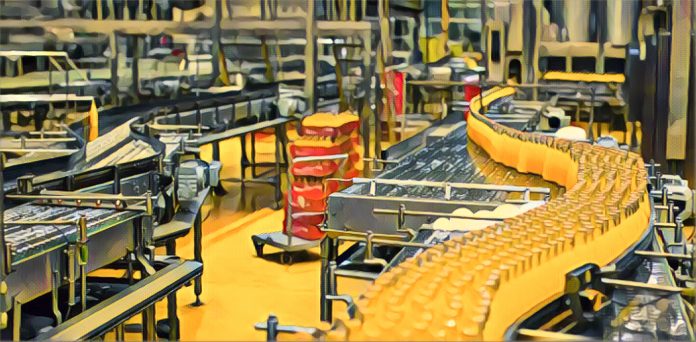Nigeria’s manufacturers are struggling to cope with the effects of the government’s economic reforms, which have led to high inflation, currency devaluation and weak consumer demand. As a result, many of them have resorted to selling their goods on credit to their distributors, hoping to recover their money later.
According to a BusinessDay analysis of the financial statements of nine fast-moving consumer goods (FMCG) firms, their total trade and other receivables rose by 72.7 per cent to N645.1 billion in the first nine months of 2023, compared to N373.5 billion in the same period of last year. This means that they have extended more credit to their customers, who are mostly retailers and wholesalers.
The FMCG firms include Nestle Nigeria, Unilever Nigeria, Cadbury Nigeria, BUA Foods, Nascon Allied Industries, Dangote Sugar Refinery, Nigerian Breweries, Guinness Nigeria and Champion Breweries. They produce and sell items such as food, beverages, household and personal care products, which are usually in high demand.
However, the demand for these products has been affected by the economic policies of the Tinubu administration, which include the removal of petrol subsidy and the naira devaluation. These policies were implemented in the second quarter of the year to address the fiscal and external imbalances caused by the COVID-19 pandemic and the oil price crash.
The removal of the petrol subsidy increased the pump price of petrol from N184 to N617, causing a hike in transportation costs and inflation. The naira devaluation reduced the value of the local currency against the dollar, making imports more expensive and increasing the cost of production. The inflation rate rose to 27.33 per cent in October, the highest level in 18 years, according to the National Bureau of Statistics.
These factors have eroded the purchasing power of consumers, who have reduced their spending on non-essential items. They have also affected the cash flow of manufacturers, who have to pay more for raw materials, energy and financing. The interest rates on loans have also increased, as the central bank tightened its monetary policy to curb inflation and defend the naira.
The situation has forced many manufacturers to offer more credit terms to their distributors, who are also facing low sales and liquidity challenges. The distributors do not want to stock up on goods that they may not sell quickly, or incur high warehousing costs. They also want to avoid paying the manufacturers with devalued money, as the naira continues to depreciate.
Some manufacturers have also reported losses in the first nine months of the year, as their revenues declined and their expenses increased. Six out of the 10 FMCG firms analysed by BusinessDay posted a combined loss of N166.3 billion, compared to a profit of N81.1 billion in the same period of last year.
The manufacturers have called for more government support to ease their burden and stimulate the economy. They have also adopted various strategies to cope with the situation, such as reducing their costs, diversifying their products, increasing their local sourcing and improving their efficiency.
Despite the challenges, some manufacturers have remained optimistic about the future, as they believe that the demand for their products will rebound once the economy recovers. They have also expressed confidence in the long-term benefits of the government’s reforms, which are expected to improve the fiscal and external positions of the country, and create a more conducive environment for business.
Source: BusinessDay



